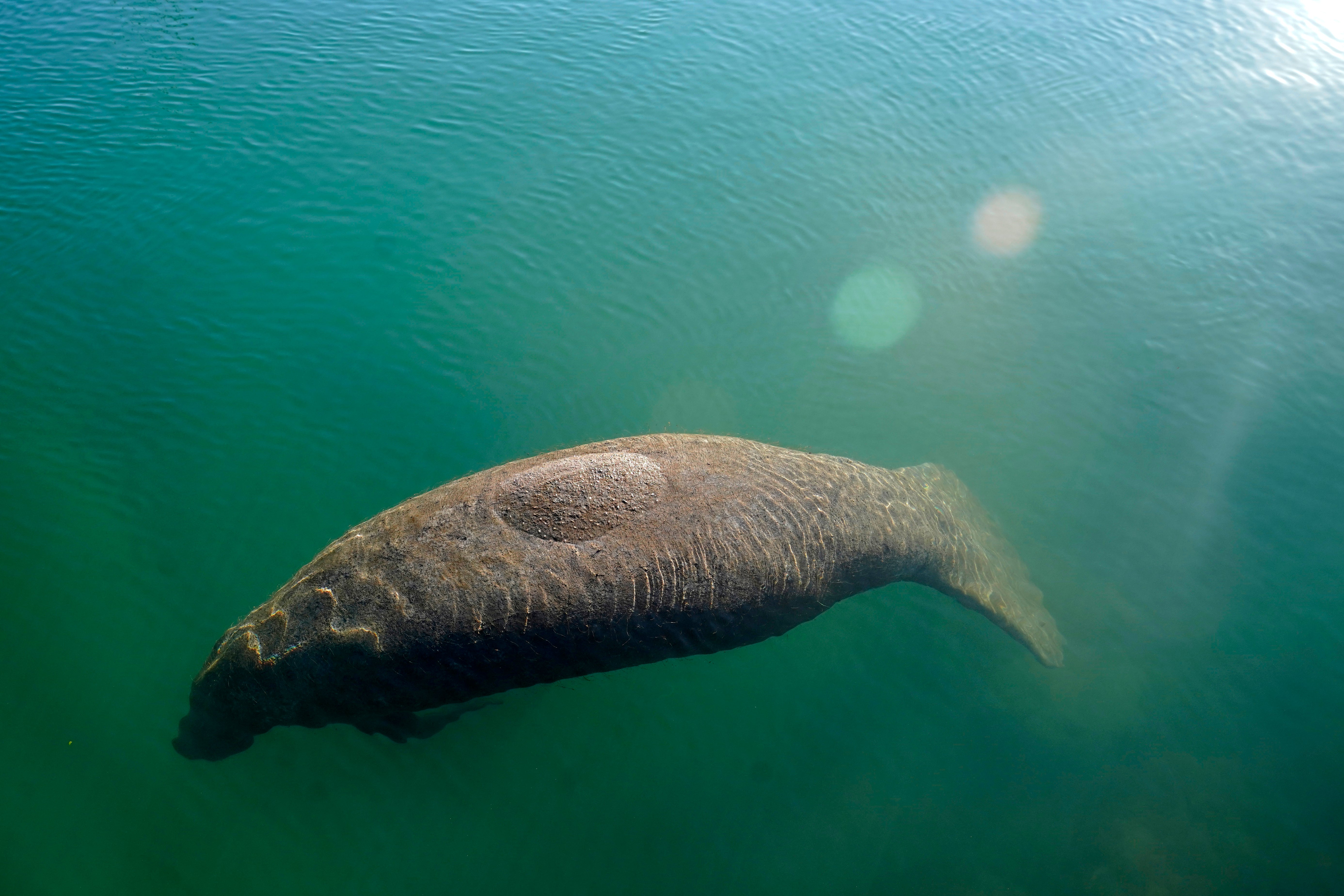Florida pins hopes on lettuce to stop manatee starvation
Lettuce will be on the menu again this year for Florida manatees in an effort to slow the starvation deaths of the beloved marine mammals

Lettuce will be on the menu again this year for Florida manatees as part of an effort to slow the starvation deaths of the beloved marine mammals, wildlife officials said Wednesday.
Plans are already in place to resume an experimental feeding program at a warm-water power plant near Cape Canaveral. Last year, about 202,000 pounds (91,600 kilograms) of lettuce was fed to manatees that gather there by the thousands when the weather turns colder.
The greater goal is to reduce pollution from agriculture, urban and sewage sources that has triggered a die-off in the seagrass beds manatees depend on for food. One water management district found that there has been a 75% drop in seagrass in the critical Indian River Lagoon since 2009.
“It worked really well last year. We will continue at that site," said Ron Mezich of the Florida Fish and Wildlife Conservation Commission. “We hope this is never a permanent situation. We don't want to have to feed wild populations.”
The feeding program was launched last winter after a record 1,100 manatees died in 2021, mostly from starvation but also from collisions with boats. This year, through Nov. 4, 735 manatee deaths had been recorded, state statistics show.
Manatees are gentle round-tailed giants, sometimes known as sea cows, that weigh as much as 1,200 pounds (550 kilograms) and can live as long as 65 years. Manatees are Florida’s official state marine mammal but are listed as a threatened species.
Although the starvation deaths are of great concern, Mezich said manatees are not in danger of extinction in Florida.
Manatees in other parts of Florida are not in danger from lack of food and do not need the romaine and butterleaf lettuce the state will provide on the state's east coast, officials said.
The exact date for the feeding program to begin hasn't been set but it will likely happen in December.
Meanwhile, manatees suffering from chronic malnutrition continue to be rescued and rehabilitated at facilities around the country, including SeaWorld Orlando, zoos and other aquariums, said Terri Calleson, a biologist with the U.S. Fish and Wildlife Service. She said about 80 are currently being cared for in these places, including some orphaned calves.
“It is still way higher than we were five years ago,” Calleson said. “We are already having emaciated manatees coming in.”
The long-term solution is improving water quality so that algae blooms and other pollution-related problems don't kill the seagrass on which manatees depend, said FWC manatee program spokesman Tom Reinert.
Although water quality has improved along the state's east coast and some seagrass is again growing naturally, it will take nursery-grown seagrass to restore the manatee food to acceptable levels, he said.
“It's still going to take a number of years,” Reinert said.



Bookmark popover
Removed from bookmarks